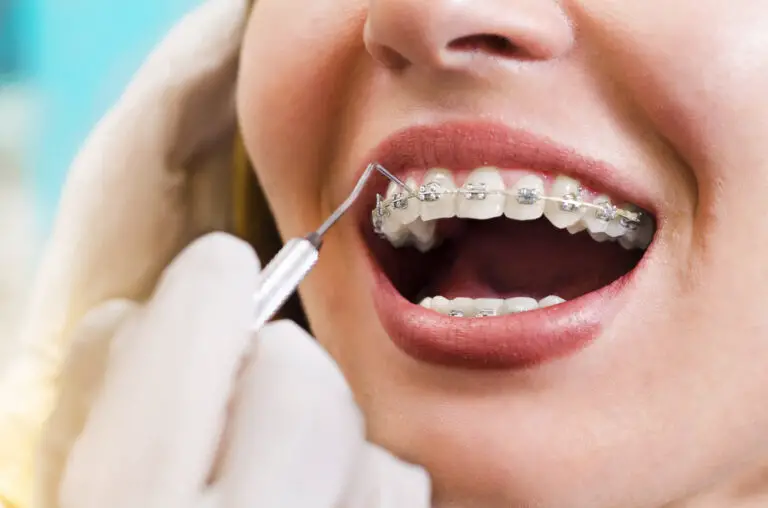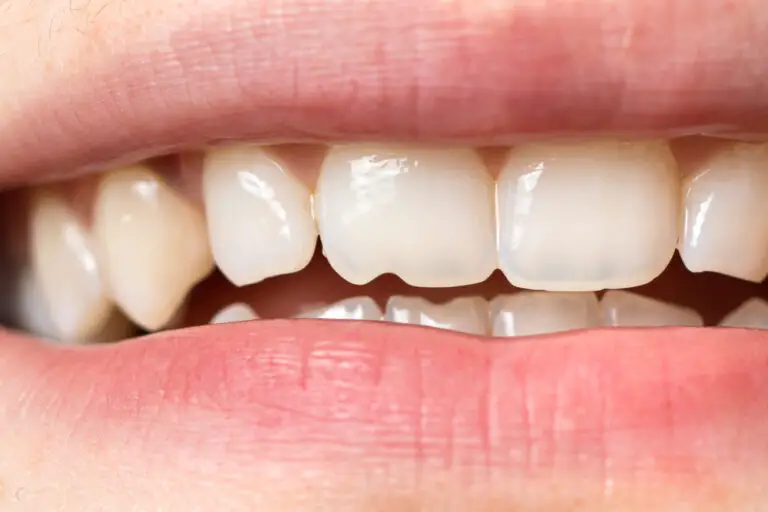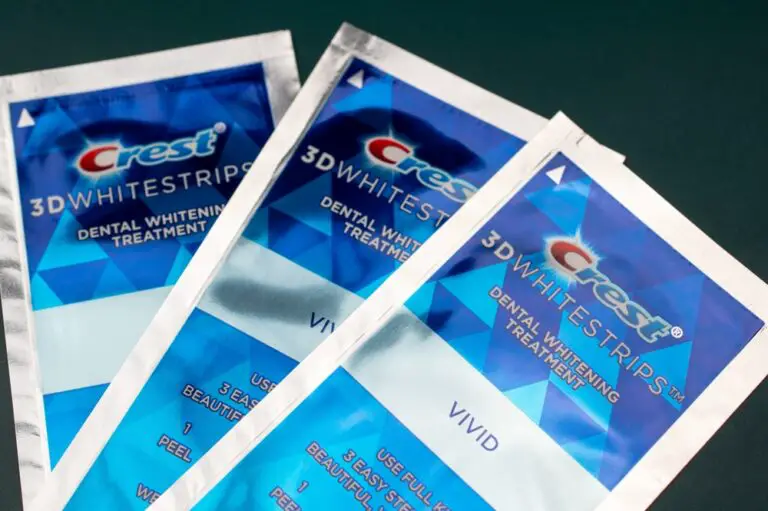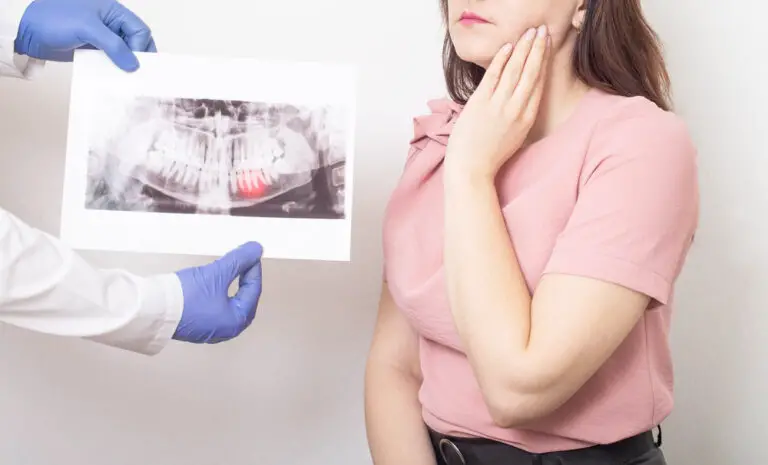Have you ever wondered why some people manage to keep their natural teeth for their entire lives? While genetics may play a role, there are several factors that contribute to maintaining healthy teeth well into old age. In this article, we will explore the secrets of how teeth last so long and what you can do to keep your own teeth healthy.
One of the key factors in keeping your teeth healthy is maintaining good oral hygiene. This means brushing your teeth twice a day with fluoride toothpaste, flossing daily, and visiting your dentist regularly for checkups and cleanings. Your dentist can provide personalized advice based on your specific needs and help you identify any potential issues before they become serious problems. Additionally, avoiding sugary and acidic foods and drinks can help prevent tooth decay and erosion, which can lead to tooth loss over time.
Another important factor in maintaining healthy teeth is protecting them from injury. This means wearing a mouthguard during sports and other high-risk activities, avoiding chewing on hard objects like ice and popcorn kernels, and using scissors or other tools instead of your teeth to open packages or cut things. By taking care of your teeth and protecting them from harm, you can help ensure that they last for many years to come.
The Structure of Teeth

Teeth are complex structures that are designed to last a lifetime. Understanding the different parts of a tooth and how they work together can help you take better care of your teeth.
Enamel
Enamel is the hard, outer layer of your teeth. It is the strongest substance in your body and protects your teeth from damage and decay. Enamel is made up of minerals, primarily calcium and phosphate, and is translucent, which allows the color of the dentin underneath to show through. Enamel does not contain any nerves or blood vessels, so if it is damaged, it cannot repair itself.
To keep your enamel strong, it is important to brush your teeth twice a day with fluoride toothpaste, avoid sugary and acidic foods and drinks, and visit your dentist regularly for cleanings and checkups.
Dentin
Dentin is the layer of your tooth that lies underneath the enamel. It is softer than enamel and contains tiny tubules that allow for the transmission of sensations, such as heat and cold. When the enamel is worn away, the dentin can become exposed, leading to tooth sensitivity.
Dentin is also made up of minerals, primarily calcium and phosphate, but it also contains living cells called odontoblasts, which produce new dentin throughout your life. If your tooth is damaged, the odontoblasts will lay down more dentin to repair it.
Pulp
The pulp is the innermost part of your tooth, and it contains nerves, blood vessels, and connective tissue. The pulp is responsible for nourishing and hydrating your tooth, as well as providing sensory feedback. If the pulp becomes infected or damaged, it can cause severe pain and may require a root canal to remove the damaged tissue.
To keep your pulp healthy, it is important to practice good oral hygiene, avoid trauma to your teeth, and visit your dentist regularly for checkups. If you experience any tooth pain or sensitivity, it is important to see your dentist as soon as possible to prevent further damage.
The Role of Saliva
Saliva plays a crucial role in maintaining oral health and keeping your teeth healthy for a long time. Saliva is a clear liquid made by several glands in your mouth area. It is mostly made of water, but it also contains important substances such as enzymes, electrolytes, and antibacterial compounds.
One of the primary functions of saliva is to lubricate your mouth, which helps in swallowing and speaking. Saliva also helps to neutralize acids produced by bacteria in the mouth, which can cause tooth decay and erosion of tooth enamel. In fact, saliva protects teeth against cavities more than we previously thought.
Saliva also contains enzymes that aid in digestion by breaking down food particles in the mouth. This helps to prevent the buildup of plaque and tartar on the teeth, which can lead to gum disease and tooth decay.
Furthermore, saliva helps to remineralize teeth by providing minerals such as calcium and phosphate. These minerals are essential for keeping teeth strong and healthy and preventing tooth decay.
In summary, the role of saliva in maintaining oral health and keeping your teeth healthy for a long time is crucial. It lubricates the mouth, neutralizes acids, aids in digestion, and provides essential minerals for remineralization. Therefore, it is essential to maintain proper oral hygiene to ensure that your saliva continues to perform its vital functions.
Proper Dental Hygiene
Taking care of your teeth and gums is essential for keeping them healthy and strong. Proper dental hygiene involves brushing, flossing, and regular dental check-ups.
Brushing
Brushing your teeth is the most important part of your daily dental hygiene routine. You should brush your teeth at least twice a day, for two minutes each time. Use a soft-bristled toothbrush and fluoride toothpaste. Make sure to brush all surfaces of your teeth, including the front, back, and chewing surfaces. Hold your toothbrush at a 45-degree angle to your gums and use gentle circular motions.
Flossing
Flossing is an important part of dental hygiene that many people overlook. Flossing helps remove food particles and plaque from between your teeth and under your gumline. You should floss at least once a day. Use about 18 inches of floss and wrap it around your fingers. Gently insert the floss between your teeth and move it up and down. Be sure to curve the floss around the base of each tooth to reach all surfaces.
Regular Dental Check-Ups
Regular dental check-ups are essential for maintaining good oral health. You should visit your dentist at least once every six months for a check-up and cleaning. During your check-up, your dentist will examine your teeth and gums for any signs of decay, gum disease, or other issues. They may also take x-rays to check for any problems beneath the surface. Your dentist or dental hygienist will also clean your teeth to remove any plaque or tartar buildup.
By following these simple steps, you can maintain good dental hygiene and keep your teeth healthy and strong for years to come. Remember to brush, floss, and visit your dentist regularly to keep your smile looking its best.
Diet and Teeth Longevity

When it comes to maintaining healthy teeth for a lifetime, diet plays a crucial role. The foods you eat can either promote or harm your dental health. In this section, we will explore the beneficial and harmful foods for teeth longevity.
Beneficial Foods
Including the following foods in your diet can help keep your teeth healthy and strong:
- Calcium-rich foods: Calcium is essential for strong teeth and bones. Foods such as milk, cheese, yogurt, and leafy greens are rich in calcium and can help keep your teeth healthy.
- Crunchy fruits and vegetables: Crunchy fruits and vegetables such as apples, carrots, and celery can help clean your teeth and stimulate saliva production, which helps neutralize harmful acids in your mouth.
- Foods rich in vitamin D: Vitamin D helps your body absorb calcium, which is essential for strong teeth and bones. Foods such as fatty fish, egg yolks, and fortified cereals are rich in vitamin D.
Harmful Foods
Avoiding the following foods can help prevent tooth decay and maintain healthy teeth:
- Sugary and acidic foods: Sugary and acidic foods such as candy, soda, and citrus fruits can erode your tooth enamel and promote tooth decay.
- Sticky foods: Sticky foods such as dried fruit and caramel can stick to your teeth and promote tooth decay.
- Starchy foods: Starchy foods such as potato chips and white bread can get stuck in your teeth and promote plaque buildup.
By including beneficial foods in your diet and avoiding harmful foods, you can help maintain healthy teeth for a lifetime. Remember to also brush and floss regularly and visit your dentist for regular checkups and cleanings.
Age and Teeth Longevity
As you age, your teeth go through a lot of wear and tear. However, with proper care, your teeth can last a lifetime. Here are some factors that affect teeth longevity as you age:
Oral Hygiene
Good oral hygiene is essential to maintaining healthy teeth as you age. Brushing twice a day, flossing daily, and regular dental cleanings can prevent tooth decay and gum disease. Poor oral hygiene can lead to tooth loss and other dental problems.
Diet
Your diet also plays a role in teeth longevity. Foods high in sugar and acid can erode tooth enamel and lead to decay. Eating a balanced diet with plenty of fruits and vegetables can help keep your teeth healthy.
Lifestyle Habits
Smoking and excessive alcohol consumption can also affect teeth longevity. These habits can lead to gum disease and tooth loss. Quitting smoking and limiting alcohol intake can help keep your teeth healthy.
Genetics
Genetics can also play a role in teeth longevity. Some people may be more prone to dental problems due to their genes. However, proper oral hygiene and regular dental check-ups can help prevent or mitigate these issues.
Regular Dental Check-ups
Regular dental check-ups are crucial to maintaining healthy teeth as you age. Your dentist can detect and treat dental issues early, preventing further damage and tooth loss.
By taking care of your teeth through proper oral hygiene, a healthy diet, and regular dental check-ups, you can ensure that your teeth last a lifetime.
Genetic Factors
Your genes play a significant role in the longevity of your teeth. While environmental factors like diet and oral hygiene are crucial, your genetic makeup can also affect how well your teeth hold up over time.
Research has shown that certain genes can impact the development of your teeth, including their size, shape, and structure. For example, twin studies have demonstrated that tooth crown dimensions, particularly buccolingually and mesiodistally, are genetically determined.
Additionally, genetic mutations can lead to dental anomalies, such as missing or extra teeth, abnormal tooth shape, and abnormal tooth structure. These anomalies can affect the longevity of your teeth and increase the risk of decay, gum disease, and other oral health problems.
However, it’s important to note that no single gene has been identified that has as significant an impact on periodontal disease as environmental factors like smoking or diabetes.
Overall, while genetic factors can play a role in the longevity of your teeth, environmental factors and proper oral hygiene are still the most significant factors in maintaining good oral health and keeping your teeth in good condition for as long as possible.
Diseases That Affect Teeth Longevity

When it comes to maintaining healthy teeth for a lifetime, it’s not just about brushing and flossing regularly. There are certain diseases that can affect the longevity of your teeth. In this section, we will discuss two of the most common diseases that affect teeth longevity: tooth decay and gum disease.
Tooth Decay
Tooth decay is a common dental problem that affects people of all ages. It occurs when bacteria in your mouth produce acids that erode the enamel on your teeth. If left untreated, tooth decay can lead to cavities, infections, and even tooth loss.
To prevent tooth decay, it’s important to practice good oral hygiene. This includes brushing your teeth twice a day, flossing daily, and visiting your dentist regularly for checkups and cleanings. You should also limit your intake of sugary and acidic foods and drinks, as they can contribute to tooth decay.
Gum Disease
Gum disease, also known as periodontal disease, is a serious condition that affects the gums and the bone that supports your teeth. It occurs when bacteria in your mouth infect the gums, causing inflammation and damage to the surrounding tissues.
If left untreated, gum disease can lead to tooth loss and other serious health problems, such as heart disease and diabetes. To prevent gum disease, it’s important to practice good oral hygiene, including brushing and flossing regularly and visiting your dentist for checkups and cleanings.
In addition, you should avoid smoking and limit your consumption of alcohol, as these habits can increase your risk of developing gum disease. If you notice any signs of gum disease, such as red, swollen, or bleeding gums, you should see your dentist right away.
By taking care of your teeth and gums and addressing any dental problems promptly, you can help ensure that your teeth last a lifetime.
Preventive Measures
Taking care of your teeth is the best way to ensure they last a long time. Here are some preventive measures you can take to keep your teeth healthy:
Brush and Floss Regularly
Brush your teeth at least twice a day with fluoride toothpaste. Floss once a day to remove plaque and food particles from between your teeth. Make sure you brush and floss properly to avoid damaging your teeth and gums.
Visit Your Dentist
Regular dental checkups are essential to maintaining good oral health. Your dentist can detect any problems early on and provide treatment before they become more serious. It is recommended to visit your dentist at least twice a year.
Eat a Balanced Diet
A healthy diet is important for your overall health, including your teeth. Avoid sugary and acidic foods and drinks, as they can damage your teeth. Eat plenty of fruits and vegetables, which contain vitamins and minerals that are good for your teeth.
Quit Smoking
Smoking is bad for your health, including your teeth and gums. It can cause gum disease, tooth loss, and oral cancer. Quitting smoking can improve your overall health and help protect your teeth.
Wear a Mouthguard
If you play sports or engage in other activities that could cause dental injuries, wear a mouthguard to protect your teeth. Mouthguards can prevent tooth fractures, jaw injuries, and other dental injuries.
By following these preventive measures, you can help ensure your teeth last a long time. Remember to take care of your teeth and visit your dentist regularly for checkups and cleanings.
Restorative Dental Procedures
If you have a damaged or decayed tooth, your dentist may recommend a restorative dental procedure to repair or replace it. Here are some common restorative dental procedures:
Fillings
Fillings are used to repair cavities in teeth. During the procedure, your dentist will remove the decayed portion of the tooth and fill the cavity with a material such as composite resin, porcelain, or amalgam. Fillings can last for several years with proper care.
Crowns
Crowns are used to repair severely damaged or decayed teeth. During the procedure, your dentist will remove the damaged portion of the tooth and place a crown over the remaining tooth structure. Crowns can be made from a variety of materials, including porcelain, ceramic, and metal. They can last for many years with proper care.
Dental Implants
Dental implants are used to replace missing teeth. During the procedure, a small titanium post is surgically implanted into the jawbone. The post serves as the root of the new tooth, and a crown is placed on top of it to complete the restoration. Dental implants can last for many years with proper care and maintenance.
Restorative dental procedures can help you maintain a healthy and functional smile. Talk to your dentist if you think you may need a restorative dental procedure. They can help you determine which procedure is right for you and answer any questions you may have.
Frequently Asked Questions
How can you take care of your teeth to make them last longer?
Taking care of your teeth is essential to ensure they last long. Brushing twice a day with fluoride toothpaste and flossing daily are the basics of good oral hygiene. Additionally, visiting a dentist regularly for checkups and cleanings can help identify and treat any issues before they become serious.
What are some factors that affect the lifespan of teeth?
Several factors can impact the lifespan of teeth, including age, genetics, oral hygiene, diet, and lifestyle habits. For instance, poor oral hygiene, smoking, and excessive alcohol consumption can increase the risk of tooth decay and gum disease, leading to early tooth loss.
Can a person’s diet impact the longevity of their teeth?
Yes, diet can play a significant role in the lifespan of teeth. Consuming a diet high in sugar and acidic foods and drinks can increase the risk of tooth decay and erosion. On the other hand, a diet rich in calcium, phosphorus, and vitamin D can help strengthen teeth and promote good oral health.
What role do genetics play in determining how long teeth last?
Genetics can influence the shape, size, and strength of teeth, which can affect their lifespan. Some people may have naturally stronger teeth than others, while some may be more susceptible to certain dental conditions due to genetic factors.
Are there any habits or behaviors that can shorten the lifespan of teeth?
Yes, several habits and behaviors can contribute to tooth decay and gum disease, leading to early tooth loss. These include smoking, excessive alcohol consumption, poor oral hygiene, and teeth grinding.
How do dental treatments and procedures impact the lifespan of teeth?
Dental treatments and procedures can help restore damaged or decayed teeth, but they can also impact their lifespan. For instance, fillings and crowns can strengthen weakened teeth, while root canals can save infected teeth from extraction. However, some procedures, such as tooth extraction, can lead to the loss of a tooth.







